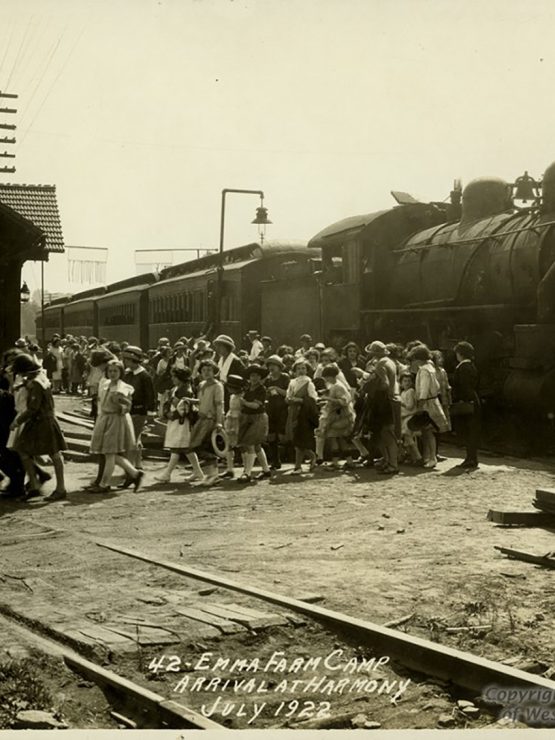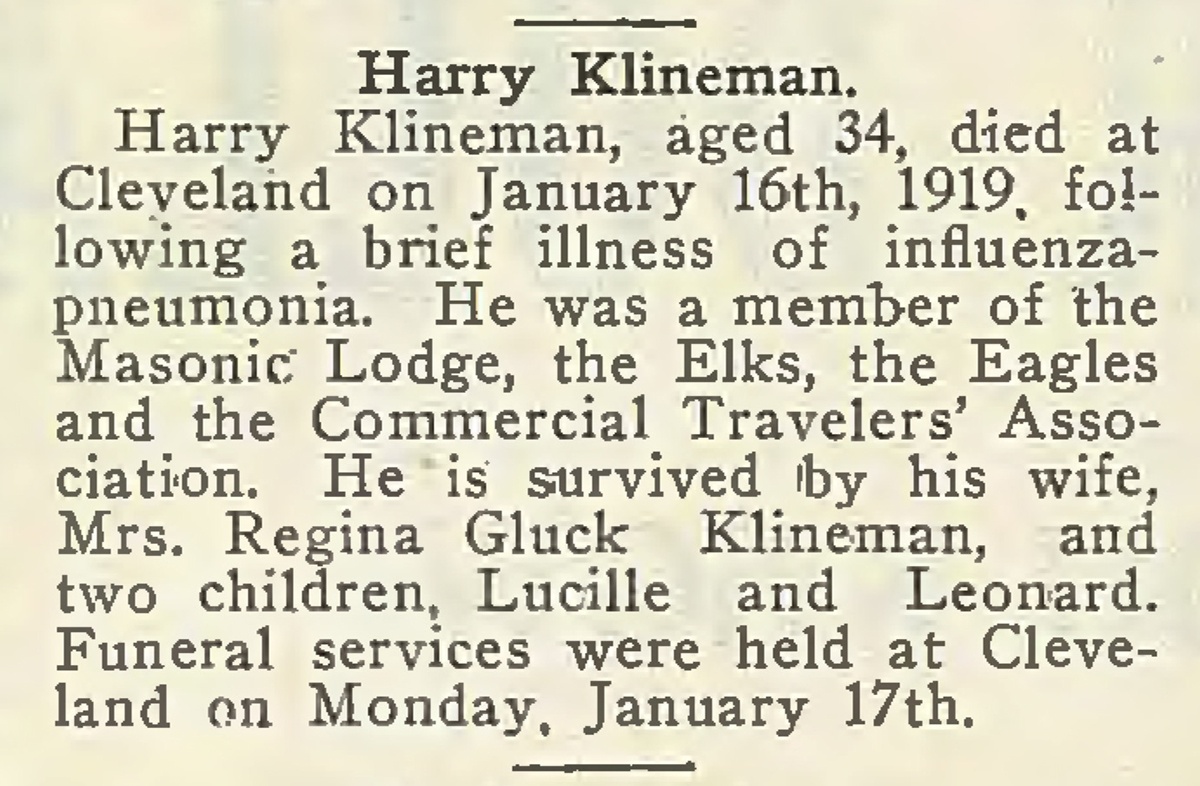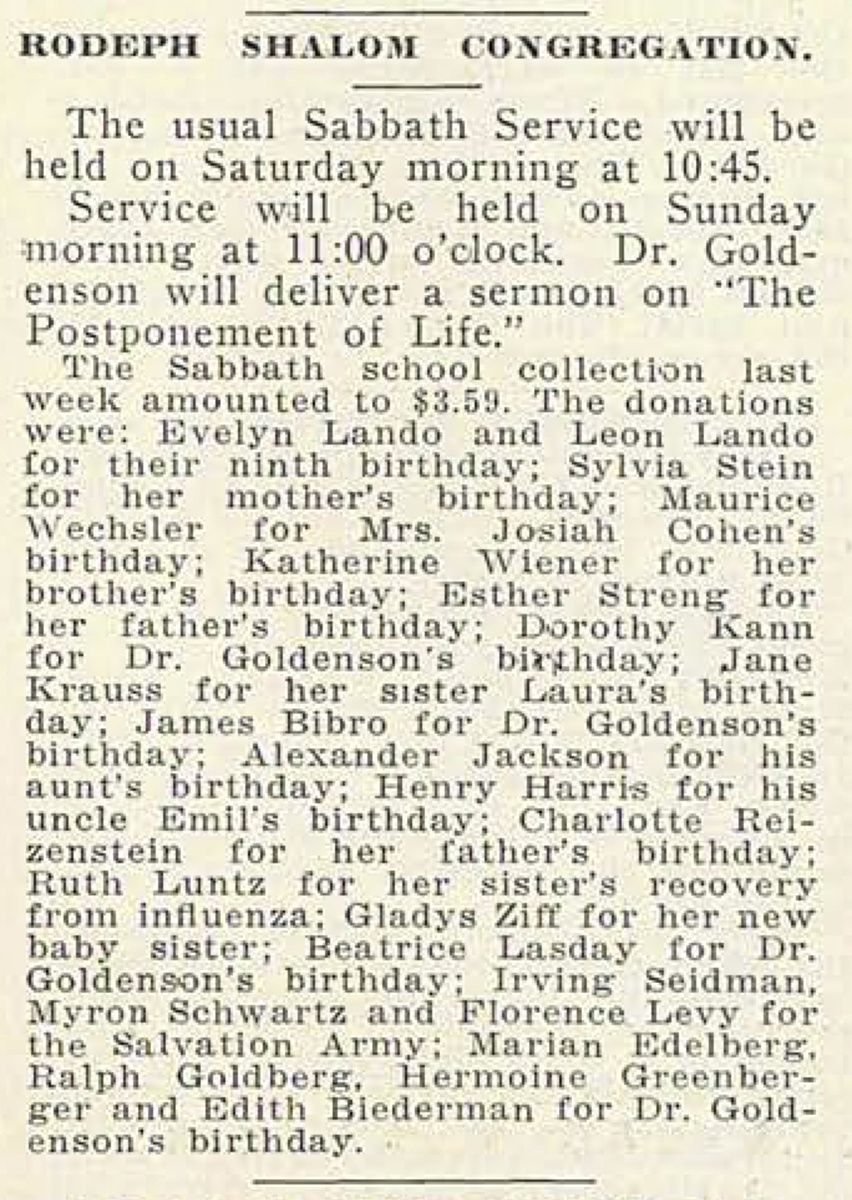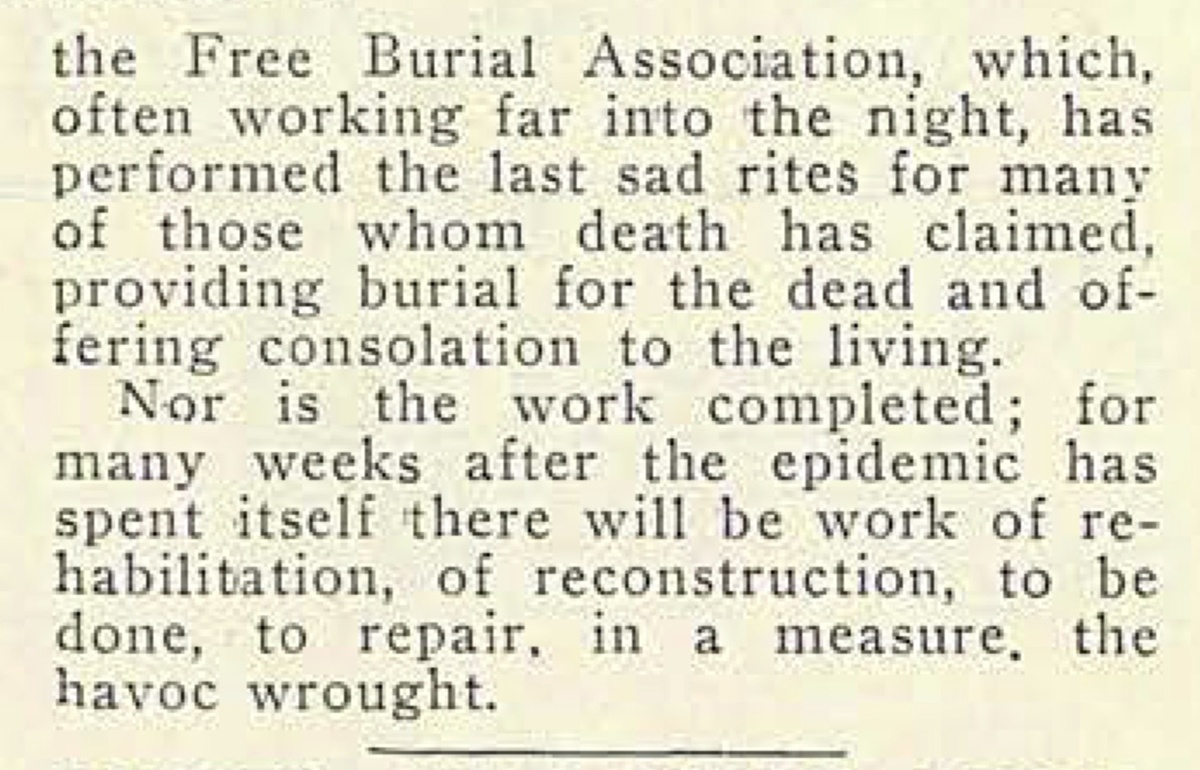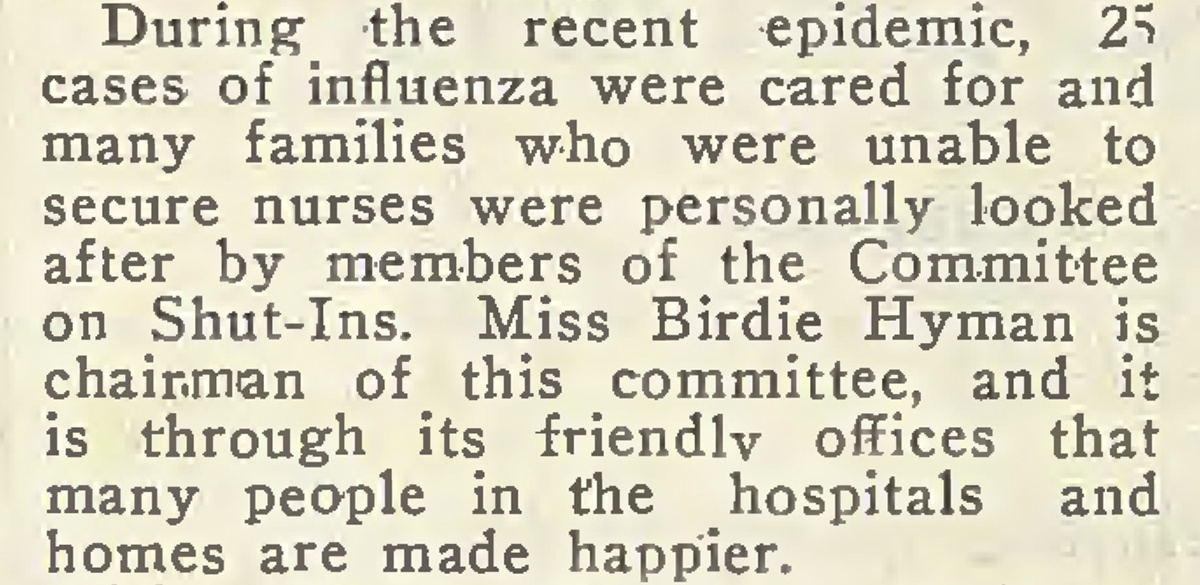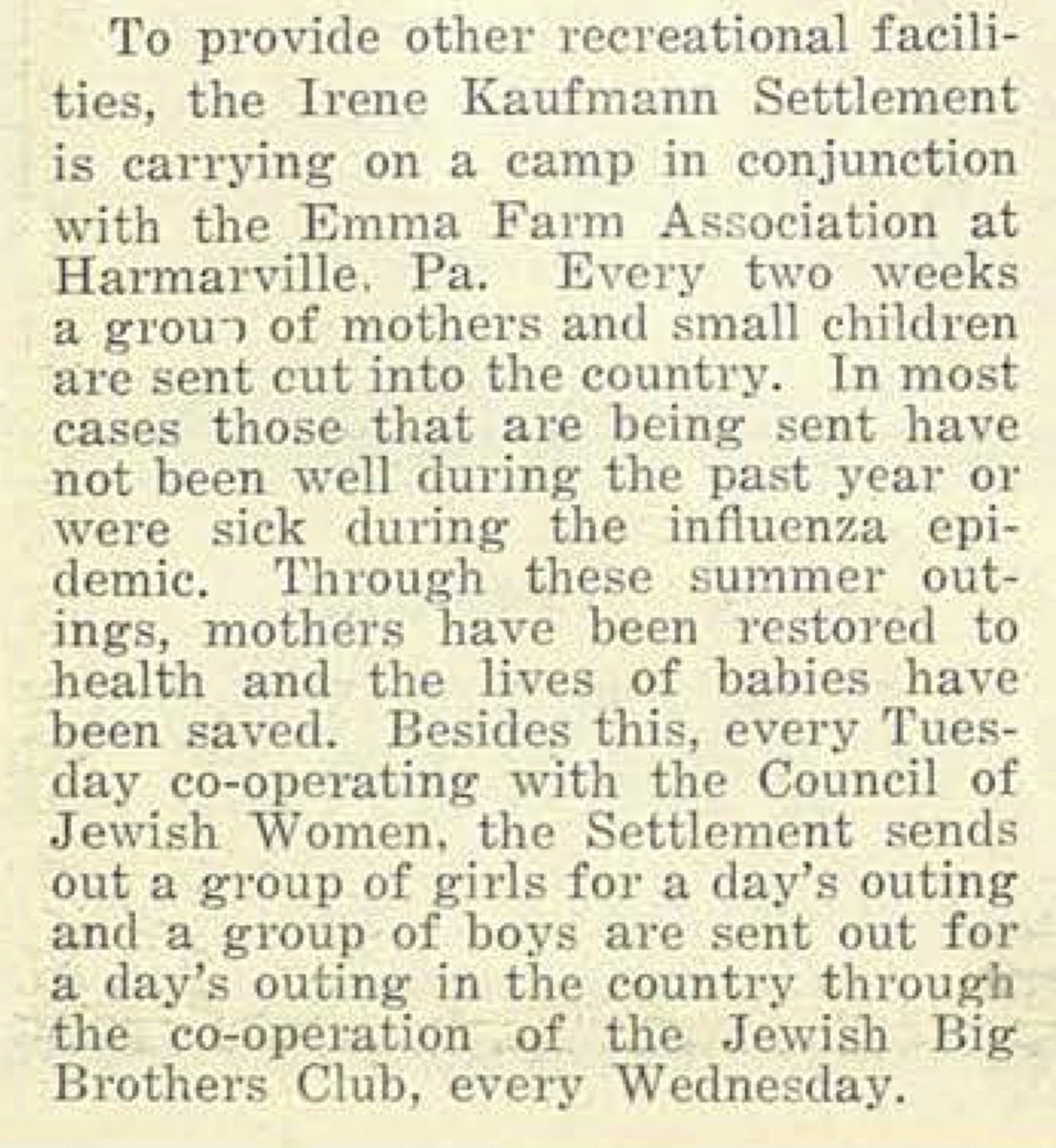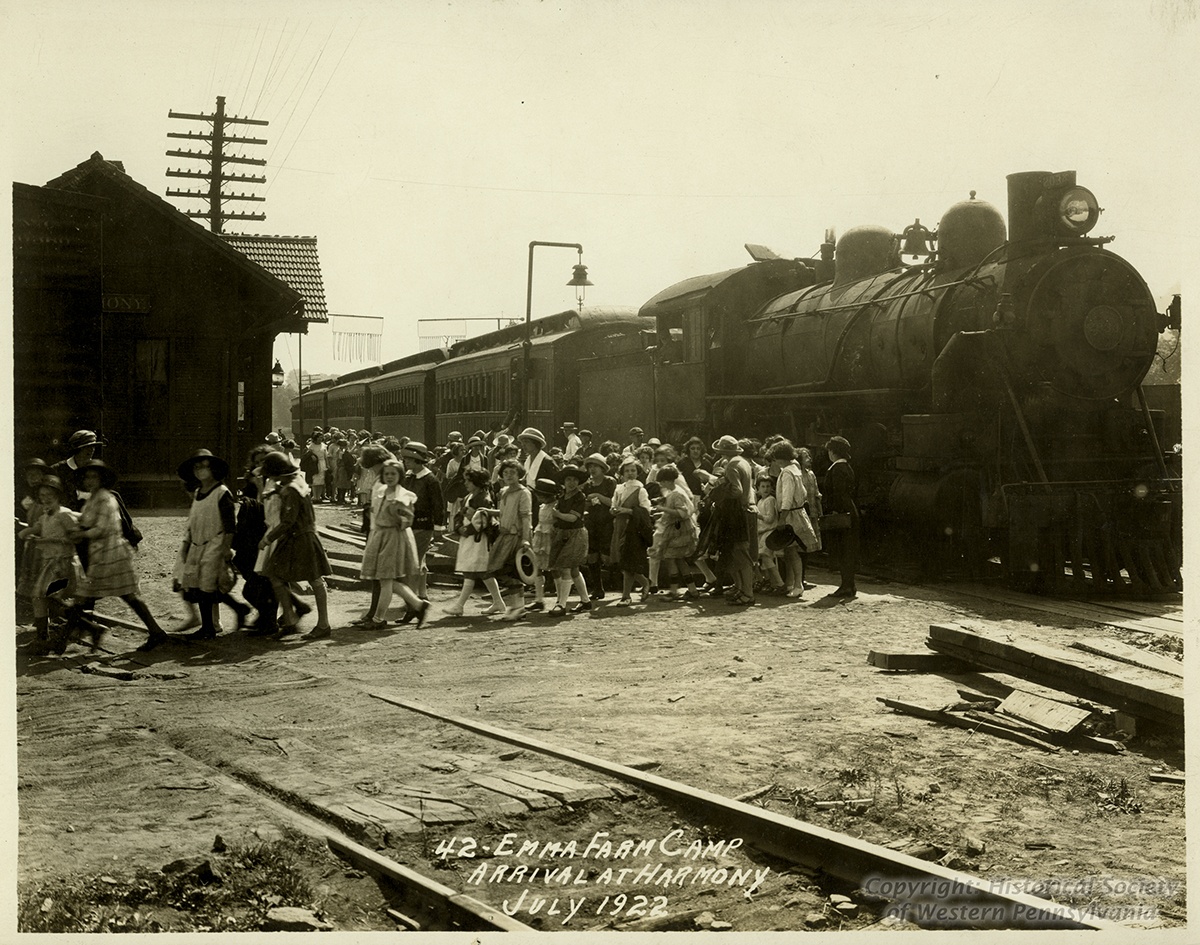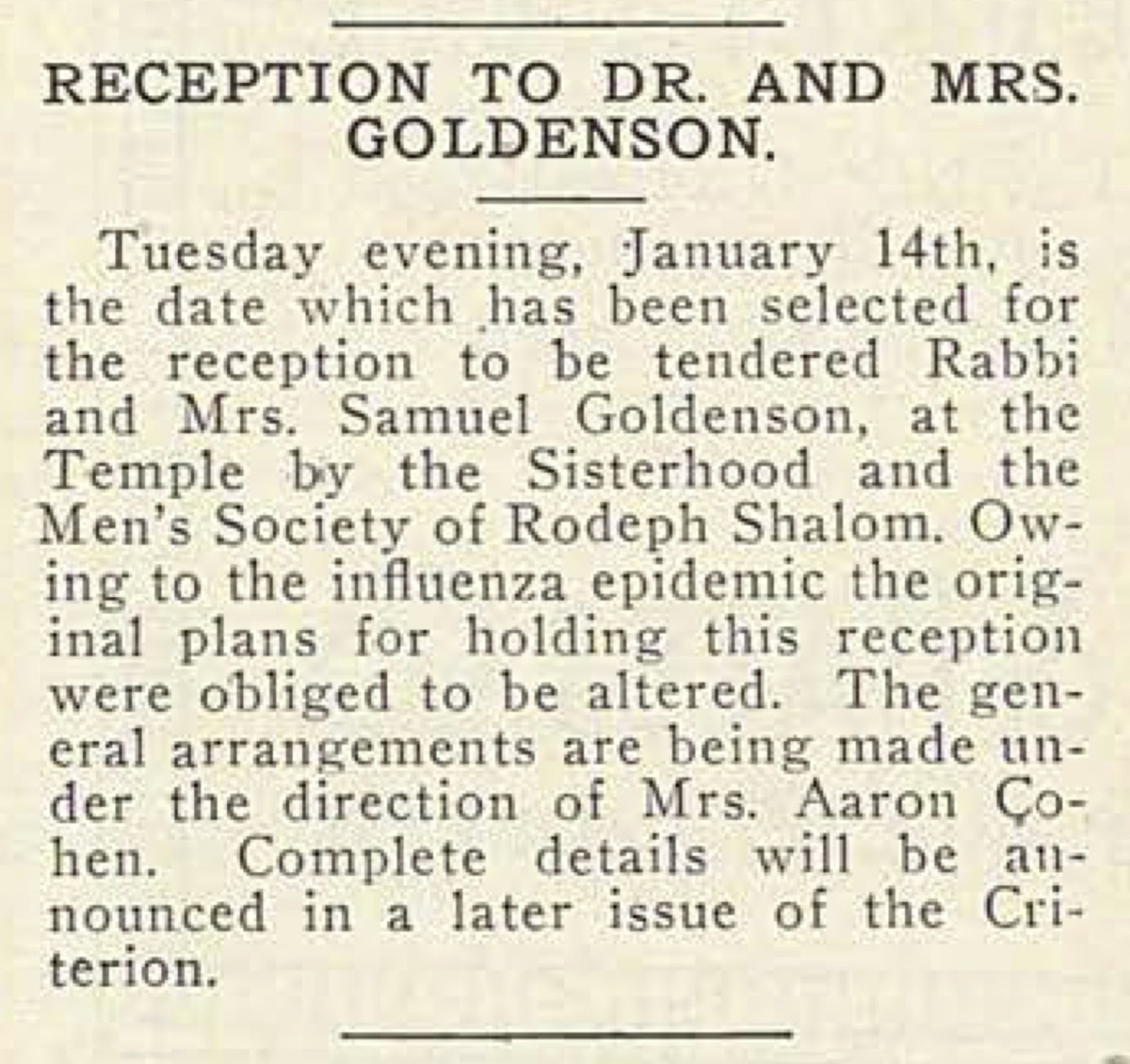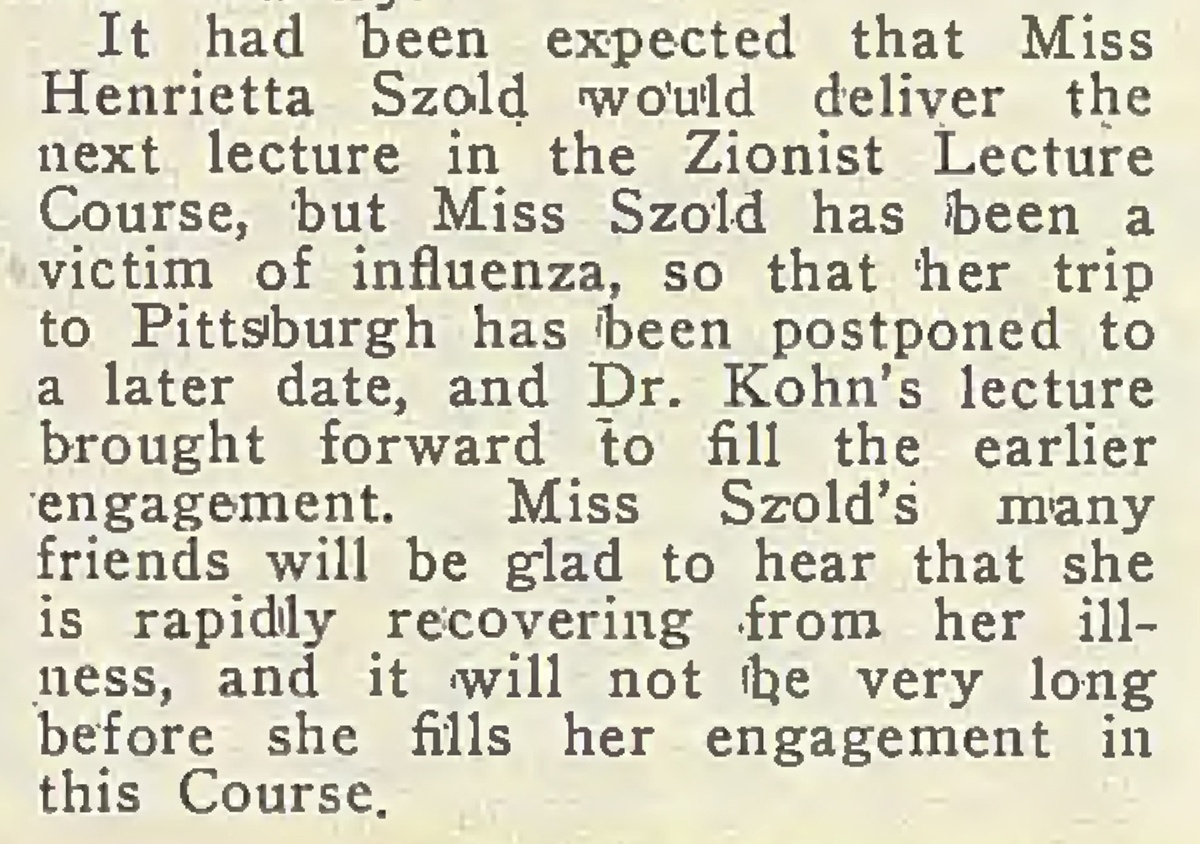For the past three weeks, the Rauh Jewish Archives has been collecting documentation of the impact of the COVID-19 outbreak on Jewish organizations in the region—emails, press releases, announcements, and stories. Thanks to these efforts, future historians should have a much richer picture of our moment than we have about the community response to a global health crisis from a century ago: the Influenza Pandemic of 1918.
The “Spanish Flu” pandemic is generally thought to be the deadliest in history, infecting 500 million worldwide and killing as many as 50 million between 1918 and 1920. The best source of information about the impact on area Jewish populations is the local Jewish Criterion, which can be read online at the Pittsburgh Jewish Newspaper Project.
Coverage of the pandemic was slender in the local Jewish press, especially compared to other big news stories like World War I and efforts to support Jewish communities in Europe. But the crisis made its presence known in the newspaper in small, evocative ways. Influenza was occasionally listed in obituaries and in other personal notices. For example, a list of donations from the weekly Sabbath School collection at Rodef Shalom Congregation includes the note, “Ruth Luntz for her sister’s recovery from influenza.”
An article from the Nov. 8, 1919 edition titled “Combating the Epidemic” is one of the most thorough descriptions of the Jewish communal response. It lists actions taken by seven beneficiaries of the Federation of Jewish Philanthropies, now known as the Jewish Federation of Greater Pittsburgh. Some of those organizations still exist today, in similar roles. The article notes, “The Free Loan Association has given a ‘lift’ to many who, while not as a rule needing charity, have required temporary assistance to tide them over this period of distress.” Two weeks ago, the Hebrew Free Loan Association of Pittsburgh announced a similar interest-free loan program for those impacted by the current virus.
Some articles provide hints of the methods and scale of the response. In a general update of activities from March 1919, the National Council of Jewish Women-Pittsburgh Section said that it had attended to 25 influenza cases, and “many families who were unable to secure nurses were personally looked after by members of the Committee on Shut-Ins.”
The nurses of the Irene Kaufmann Settlement House, a forerunner to the current Jewish Community Center of Greater Pittsburgh, made 270 influenza-related investigations between mid-1919 and mid-1920. The agency was working on behalf of the State Board of Health. Every two weeks throughout the summer of 1919, the Settlement House sent small groups of mothers and young children to its Emma Farm Association in rural Harmarville, Pa. “In most cases those that are being sent have not been well during the past year or were sick during the influenza epidemic,” an article from August 1919 notes.
While many organizations provided critical services, many more were forced to shut down entirely, just as today. The Rodef Shalom Sisterhood and Men’s Society were forced to postpone a tribute to Rabbi Samuel Goldenson in late 1918 due to health concerns. The Zionist leader and Hadassah founder Henrietta Szold was scheduled to deliver a lecture in Pittsburgh in early 1919 but canceled after contracting influenza.
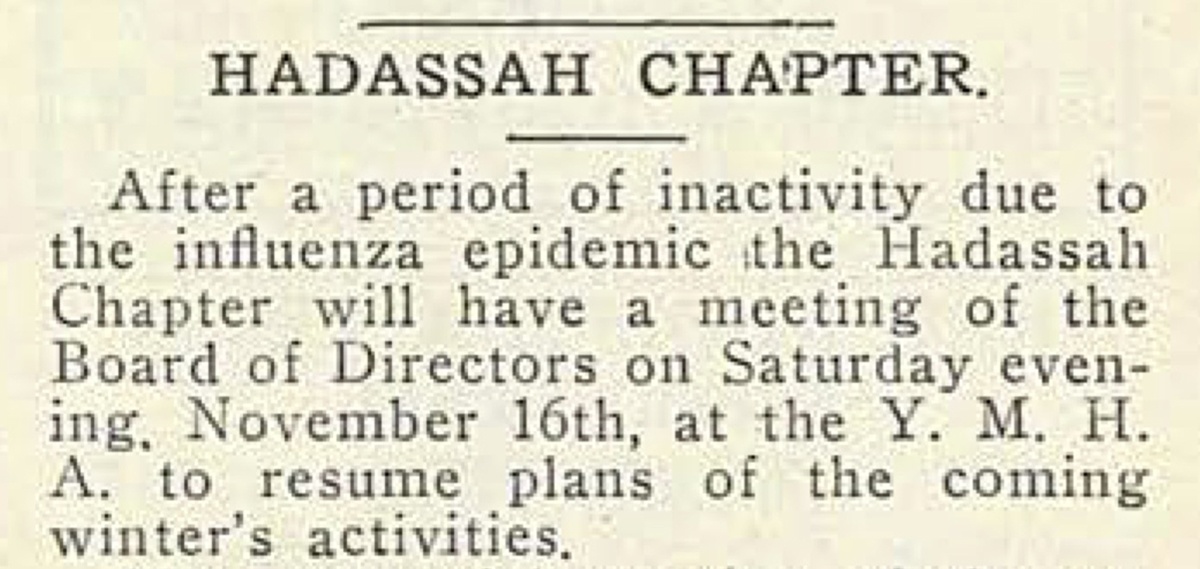
In going through these articles, it is encouraging when Jewish agencies gradually resume normal operations after periods of inactivity. In mid-November 1918, fairly early in the crisis, the Criterion noted, “After a period of inactivity due to the influenza epidemic the Hadassah Chapter will have a meeting of the Board of Directors on Saturday evening, November 16th, at the Y. M. H. A. to resume plans of the coming winter’s activities.”
Eric Lidji is the director of the Rauh Jewish History Program & Archives.
